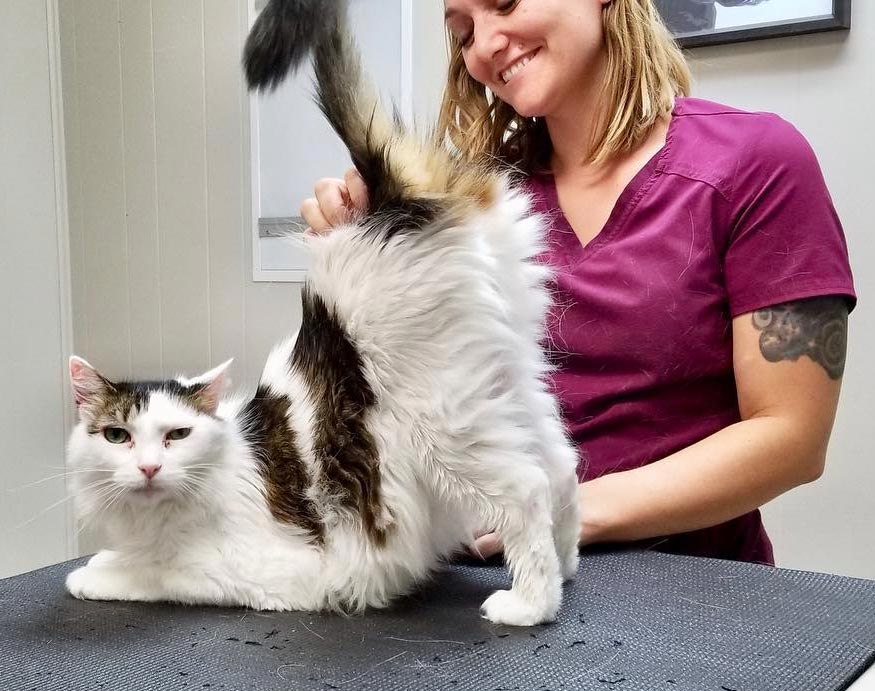Our hospital is an accredited member of the American Animal Hospital Association. As an accredited hospital, we voluntarily uphold the Association’s highest standards in 18 different areas, including patient care, surgery, pharmacy, laboratory, exam facilities, pet health records, cleanliness, emergency services, dental care, diagnostic imaging, anesthesiology, and continuing education.
We encourage you to schedule an appointment so that your pet can be seen in a timely manner. That said, we understand that unexpected circumstances may arise, and are always happy to accept walk-ins. In the case of an unplanned appointment, please call us before your arrival so that we may prepare accordingly.
According to the AVMA Principles of Veterinary Medical Ethics, it is unethical, and in most states, unlawful, for a veterinarian to write a prescription or dispense a prescription drug outside a Veterinarian-Client-Patient relationship. In order to maintain this relationship, a veterinarian must see your pet at least once per year.
Your pet will need to be examined at least once a year in order to have immunizations at our hospital. The rabies vaccine must be administered by a doctor, but all other vaccines can be given by one of our veterinary technicians.
All dogs should be tested for heartworms every 12 months for routine preventative care. While regularly administered heartworm prevention does greatly reduce the risk of heartworms, nothing is perfect. Owners may accidentally miss a dose or fail to give it on the scheduled date, and pets may regurgitate their medication before receiving the full effects. The danger of not testing is not knowing. Heartworm disease is a serious and potentially fatal issue, it should be detected and treated as soon as possible. Annual testing is essential to maintaining your pet’s well-being.
In Texas, it does not get cold enough in the winter to kill off the mosquito population. As such, the American Heartworm Society recommends year-round administration of heartworm prevention to limit the proliferation of heartworms and pathogenic/zoonotic parasites.
All new pets should be tested for intestinal parasites upon adoption, and then once a year from that point on. Parasites can cause severe health issues in your pet, and are frequently contagious to humans as well. With early detection, most parasites are easily treated and eliminated.
Anesthetic drugs are processed by the liver and kidneys, and filtered from the blood stream at a predictable rate. However, if the pet’s liver and/or kidney functions are impaired, normal usage of anesthetic drugs can have deadly consequences. As your pet ages, his/her organs gradually become less efficient. Results of a pre-surgical blood test can help the veterinarian to select the safest dose and type of anesthetic drug for your pet. Alternatively, if a test reveals poor organ function, the veterinarian may want to discuss the risks and benefits of the surgery with you, or may elect not to risk the surgery at all.
Dental radiographs are one of the most important diagnostic tools available to a veterinarian. They allow the dentist to examine the internal anatomy of the teeth, as well as their roots and surrounding bones – structures which can be seen only with a radiograph. Furthermore, full-mouth radiographs establish a base-line for future comparison.
Unfortunately, veterinary clinics are not affiliated with the animal control systems in Austin, Texas. We recommend that you take an abandoned pet to the Austin Animal Center. Their phone number is 512-974-2000, or you can simply call 3-1-1. We are always happy to scan the pet for a microchip, but we cannot board a lost pet at our hospital.




